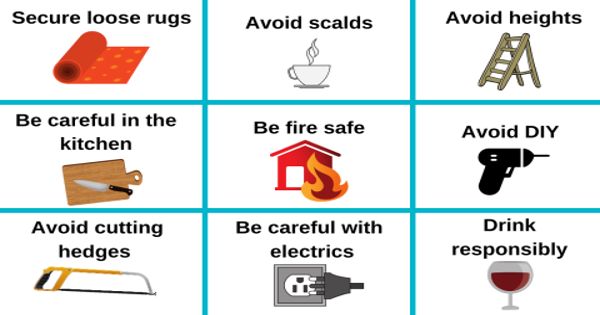To prevent accidents at home especially those to little children, it is extremely important to have a ‘childsafe’ home.
Here are some handy tips to point you in the right direction. Children are inquisitive, so never leave a child alone to crawl, especially near stairs. It is always good to have a stair gate in place at the top and bottom of your stairs. Small children can easily fall as they learn to walk. The garden is another dangerous place. Therefore, never leave a child near an open pond or swimming pool.
Most accidents involving children can be predicted and are therefore preventable. Vigilance is not a substitute for simple safety measures. One must admit that it is physically impossible to keep an eye on a child all the time. This is especially so when you are tired or preoccupied. Accidents are more likely to happen. If you are going through a stressful time, such as work pressure, chances are that you are less alert to possible hazards.
Enforcing safety rules, such as not touching plug points or not playing with matches, are important from an early age but remember that these rules need to be repeated over and over again before the message sinks in. The most important step a parent should take is to make the home a safe place for little ones. So sharp objects such as knives and scissors should be kept out of reach of children. Similarly, medicine and poisonous substances should be kept under lock and key. Swallowing objects that are brightly colored and small like buttons and beads are a common home accident. Extra care on the part of adults with these things will and can prevent such accidents.
Scalding by hot water or oil is another preventable home accident. Observe a few basic precautions and such accidents will not take place. Handles of saucepans should be turned away from the edge of tables. Either an adult or a child might be careless enough to tip the pan over.
Most cases of poisoning happen in the home and are usually the result of accidental ingestion of medication, paraffin, and cleaning agents. Children, particularly those under four years, are especially at risk because they are curious creatures and explore the world by putting everything into their mouths. Therefore, do not be fooled into thinking that children would not ingest bad tasting substances.
In case of accidents, all homes should be equipped with a first-aid kit. Parents should teach children the basic of first-aid steps to take in case of emergencies. Accidents sometimes cannot be eliminated but first-aid would help ease the pain until proper medical care arrives.
These recommended ways can help to a large extent. They might not prevent altogether but they can ensure fewer accidents.
















